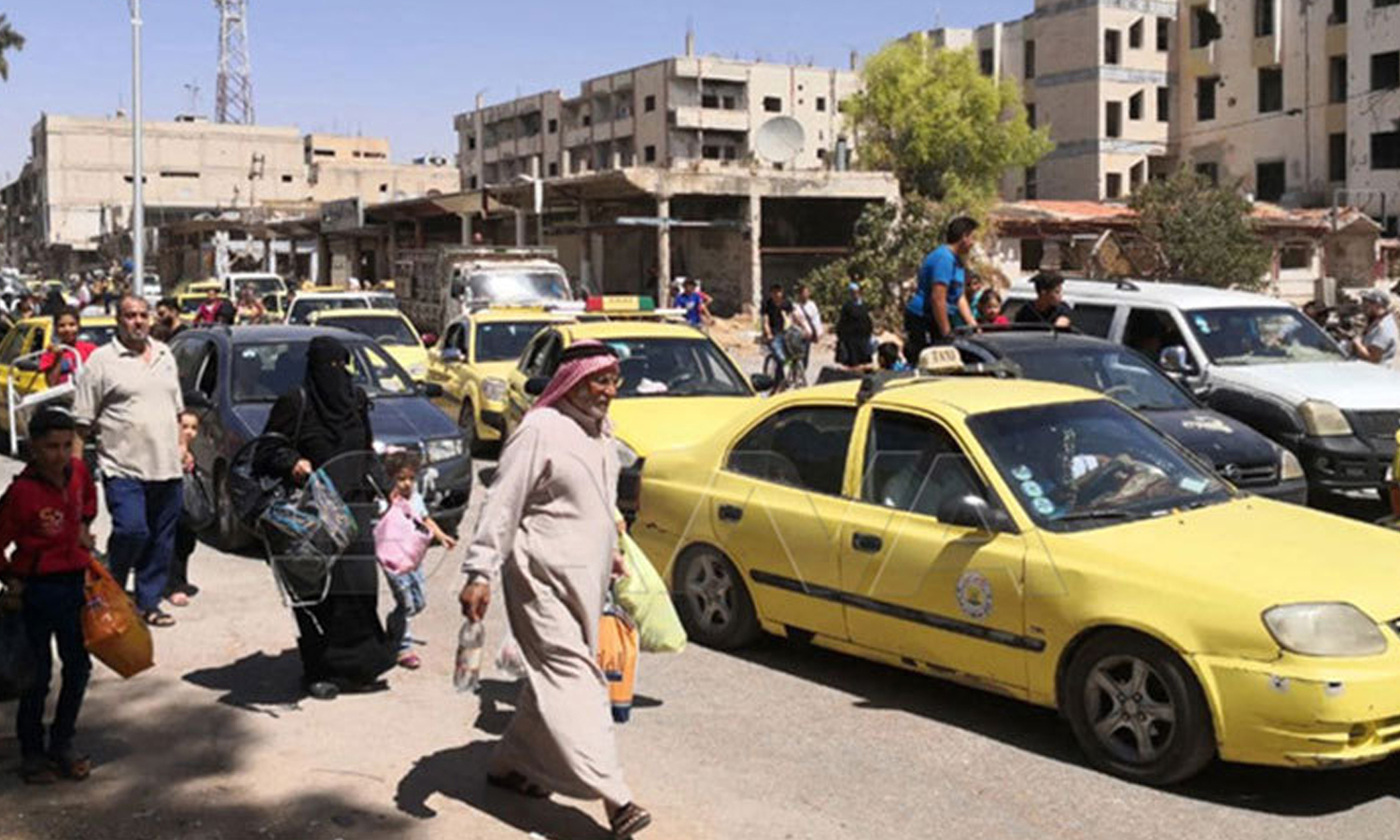



Daraa – Halim Muhammad
Carrying her son, who has hepatitis C, Iman walks under the rays of the May sun for a distance of about three kilometers toward the Syrian Arab Red Crescent (SARC)’s medical point in southern Daraa governorate.
Iman, whom Enab Baladi withheld her name for security reasons, was unable to take a taxi to relieve her of the hardship of walking after the taxi owners raised the fare following the regime government’s new gasoline prices.
Iman said, “as soon as I get in the taxi, I have to pay 4000 Syrian pounds, even if the distance is a few meters,” at a time when her son needs hourly reviews, as she does this four times a day.
Few taxis roam the streets, according to what Enab Baladi monitored, and residents are less willing to use them as means of transportation after raising the fare.
Taxi owners invoke an increase in the cost of the ride fare due to the insufficient allocation of government-subsidized gasoline, so they raise the price based on the prices of fuel on the stalls.
“You ask the taxi driver about raising the price, and his answer is that a liter of gasoline is at 6000 pounds, knowing that he has provisions for subsidized gasoline at a price of 1100 pounds per liter,” Iman said.
On 18 May, the Ministry of Internal Trade and Consumer Protection in the government of the Syrian regime raised the price of gasoline sold to the consumer via the electronic “smart card,” with the exception of subsidized gasoline and diesel.
And it set the selling price of Octane 90 gasoline to the consumer at the cost price via the electronic card at 3,500 Syrian pounds and octane 95 at 4000 Syrian pounds.
As soon as the decision was issued, fuel dealers raised gasoline prices from 4,500 to 6,000 pounds.
The exchange rate of the US dollar against the Syrian pound reached 3,980 Syrian pounds, according to the Syria Pound Today website, which specializes in exchange rates and foreign currencies.
Stall sellers obtain gasoline from the owners of private cars and taxis.
Abu Mohammad, a 45-year-old taxi driver, told Enab Baladi that “most of the taxi drivers are satisfied with selling their subsidized allocations to take advantage of the price difference.” Therefore, “we see that there are few taxis in the streets,” he added.
The regime government’s decisions to raise the price of gasoline “are in the interest of private and public taxi owners,” according to the taxi driver, as “the difference between the price of subsidized gasoline and the price of free gasoline has become about 4,500 Syrian pounds, and selling it has turned into a profit that encourages taxi owners to stay in their homes, and the sale of allocations is better from working in the streets,” so taxi workers resorted to raising the price based on the prices of private gasoline, which is sold on stalls.
The increase in the diesel price led to the high prices of the rest of the commodities related to it to record levels, exceeding 100 percent, while the only measure taken by the Syrian regime when raising the price of diesel was to increase salaries and wages by 50 percent, bringing the average monthly income to about 70,000 Syrian pounds.
The regime-held areas are witnessing a stifling transportation crisis due to the lack of fuel, the reluctance of many bus and taxi drivers to work, and their resort to selling their monthly allocations of diesel in the black market at high prices.
if you think the article contain wrong information or you have additional details Send Correction